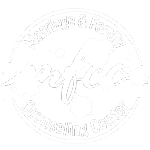Posttraumatic Stress Disorder
When people experience traumatic events – such as experiencing a rape, a violent assault, a car accident, natural disasters, combat, or being repeatedly exposed to traumatic events – it can often lead to serious difficulties in their everyday lives. Feeling fear or a ‘fight, flight or freeze’ response to a traumatic event is completely normal, and sometimes individuals can struggle to escape this response to trauma. Often individuals can also experience a host of negative side effects including:
- Flashbacks or nightmares
- Severe anxiety, especially when confronted with a similar situation or event
- Sadness or depression
- Anger or uncontrollable outbursts
- Avoiding situations, people or places
- Intrusive thoughts about the event
- Constantly feeling as if they are reliving the event
- A feeling of detachment from people or places that evoke strong memories
- Being easily startled
Symptoms can start immediately, or show years later
Sometimes these symptoms begin immediately after the traumatic event, but it’s not uncommon for these symptoms to show up weeks, months or even years later. When symptoms like these worsen, it could be a sign the individual is experiencing Posttraumatic Stress Disorder, most commonly known as PTSD. PTSD is a diagnosable mental health disorder that can create significant mental, emotional and physical turmoil for the individual if left unaddressed. For many, PTSD can cause significant disruption to their daily lives, their ability to work and even their relationships. While PTSD is typically thought of as a direct exposure to a traumatic event, even those who are indirectly exposed can also experience PTSD.
Staggering statistics of PTSD
- 70% of adults in the US (or approximately 223.4 million people) have experienced some type of traumatic event at least once in their lives
- Up to 20% (approximately 44.7 million people) of these people develop PTSD as a result of the traumatic event
- An estimated 8% of Americans (approximately 24.4 million people) have PTSD at any given time.
- Women are twice as likely as men to develop PTSD, and 1 out of 9 women (11%) will experience/develop PTSD during their lifetime (According to PTSD UNITED https://ptsdunited.org/ptsd-statistics-2/)
Therapy can help
Recognizing the signs and symptoms of trauma and PTSD can help you or a loved one find help sooner. If you or a loved one think you may be experiencing PTSD, or you are dealing with any of the symptoms above, reach out today. We can help you:
- Understand the effects of the trauma you experienced
- Identify if you have PTSD
- Identify and challenge any negative beliefs you may have as a result of the trauma experienced
- Learn ways to better manage the effects of PTSD
- Process, name and effectively work through the emotions related to the trauma





